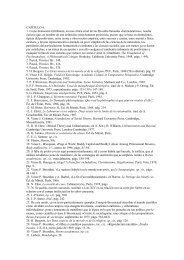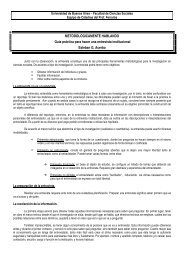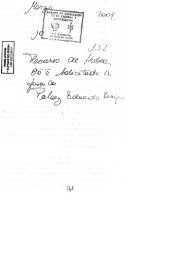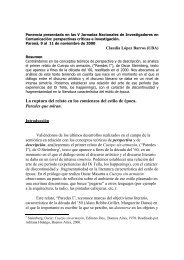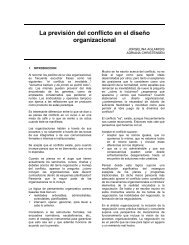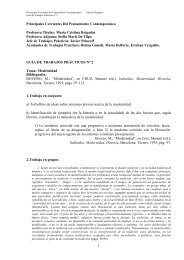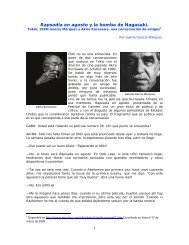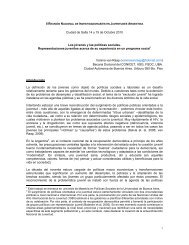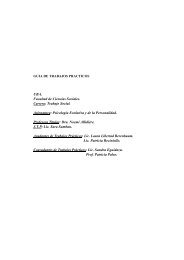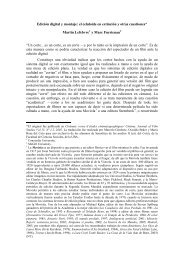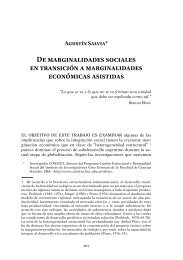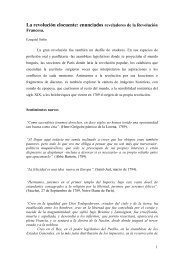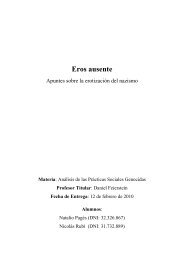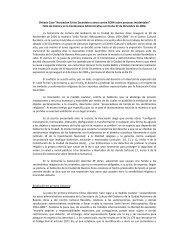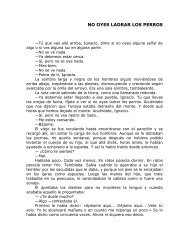Charisma Reconsidered
Charisma Reconsidered
Charisma Reconsidered
Create successful ePaper yourself
Turn your PDF publications into a flip-book with our unique Google optimized e-Paper software.
particular institutions, offices and practices become sacralized – could be inverted,<br />
and used to explain the charisma of leaders. The fact that leaders are often<br />
believed to be touched by a divine spark now comes to be seen as a result of the<br />
fact that they embody in themselves something greater and more sacred than<br />
themselves. Considerations like these led Edward Shils, whom I will discuss<br />
shortly, to look for a larger alternative conception within which this generalized<br />
residual notion of charisma could be placed. His strategy, which organized the<br />
problem around the concept of the charisma of central institutions, tended to<br />
assimilate the idea of charisma to the idea of the holy and to the sacred–profane<br />
distinction, an assimilation that brings the concept of charisma closer to Weber’s<br />
own ideas about magic and enchantment.<br />
Even more puzzling is the use of charisma in combination with its<br />
apparent opposites. The sections on discipline and charisma and on business<br />
charisma in Economy and Society (1978 [1922]) are particularly interesting<br />
examples of this. In these cases the relationship between the concepts in question<br />
reflects primarily the institutional sense of charisma. It is possible to identify, in the<br />
case of military discipline, ‘leadership’ elements that strongly resemble the type of<br />
pure charisma, but the concept of discipline, in effect, and by definition, excludes<br />
the violation of routines, and might even be understood as the internalization<br />
through habituation, in a particularly powerful way, of written or unwritten rules,<br />
thus making it paradoxical that a ‘combination’ of charisma and discipline could<br />
occur at all.<br />
Similarly for business. If decisions to buy and sell in a marketplace are the<br />
paradigm of rational, instrumental behavior, in which one succeeds through more<br />
closely approximating the pure type of instrumental rationality (meaning to<br />
exclude from consideration all irrational attachments, emotions and sentimental<br />
considerations), then the residual is excluded from the pure type by definition,<br />
and from the empirical approximations to this pure type by the fact that in a<br />
market the inclusion of ‘irrational’ elements typically leads to error and business<br />
failure. 2 But Weber elaborates at some length about a case of business charisma, in<br />
which his own family’s fortunes were apparently directly involved. It was a case in<br />
which a great financier achieved financial success by virtue of his almost Napoleonic<br />
capacity to get investors to throw their lot in with him without any clear<br />
understanding of the strategy he was to employ but entirely out of respect for his<br />
prowess, that is to say, his extraordinary capacity for making money and therefore<br />
for making money for those who invested with him.<br />
The type here is essentially a Herzog of the market. Such types still exist in<br />
financial markets, and advisers on investments are known and indeed revered as<br />
‘gurus’. But what Weber makes of this phenomenon is difficult to grasp and to<br />
square with the notion of ideal-types. Ideal-types, at the formal level, operate<br />
according to the logic of mutual exclusion, in which the notion of combination<br />
makes no sense. In the case of the business leader, the problem arises not because<br />
there is a combination here that represents a new type, a combined type, but<br />
TURNER CHARISMA RECONSIDERED 11



